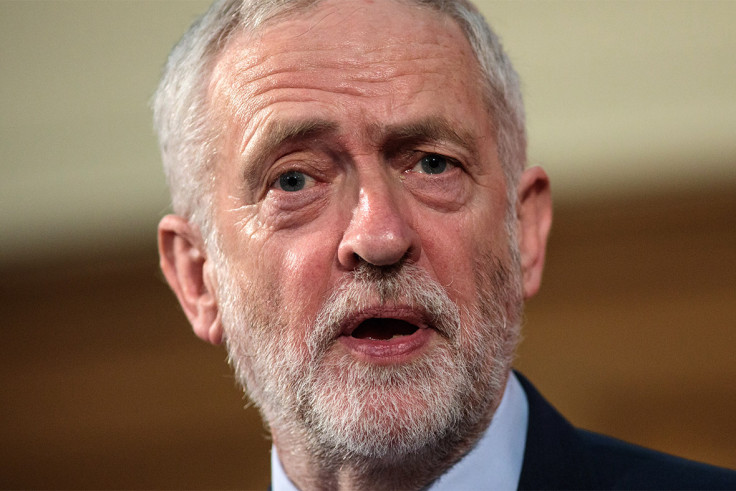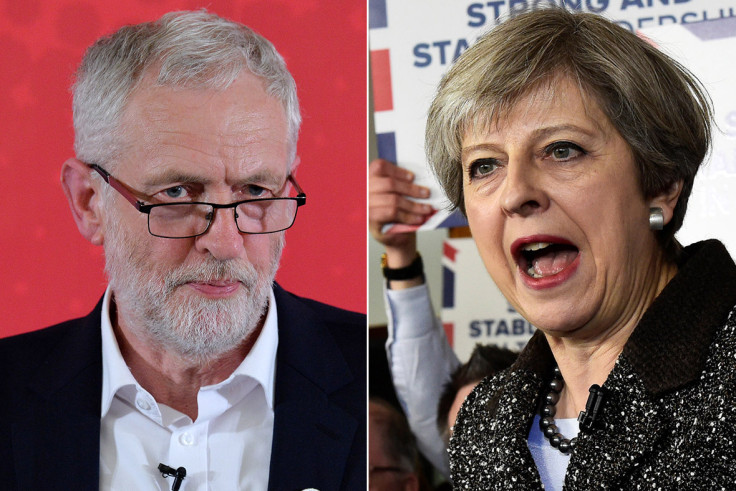Corbyn and his allies care more about controlling Labour than winning the election
That Jeremy Corbyn will stay on as leader even if Labour suffers a big election defeat shouldn't surprise us.

To be completely wedded to the idea of Jeremy Corbyn staying on as leader of the Labour Party in perpetuity – i.e. notwithstanding a crushing defeat in next month's general election – is to do the work of those who would happily see the party disappear altogether.
Unless there is some cataclysmic event in the next few weeks, the question is not whether the Conservatives are going to win the election but by how much.
The notion that elections are won and lost on economic self-interest may have taken a battering in the past 12 months, but no opposition party can hope to govern when three times as many voters trust your opposite number to run the economy better than you. Turning that around in five years would be a considerable ask. Doing it in five weeks is the equivalent of starting a rigorous exercise programme the night before you are due to run a marathon.
What will probably hurt Labour members the most are numbers in the same poll showing that more people trust Theresa May to make Britain a fairer society than Jeremy Corbyn. As New Labour understood, if the public doesn't trust you to run the economy it will never trust you to distribute the proceeds of growth fairly. Probably because it assumes there won't be any.
And so it might strike observers as odd that Corbyn is now saying he will continue as leader of the party even if things do turn out as badly as it looks like they will. Speaking to BuzzFeed in Leamington Spa, Corbyn said he "was elected leader of this party and I'll stay leader of this party". He would be "carrying on", he said, regardless of what transpired on 8 June.
Yet this ought not to be all that surprising. The aim of Corbyn and his supporters is first and foremost to wrestle control of Labour from the party's 'moderates' rather than to form a government. It is a long game headed by politicians and activists who, having spent several decades in the political wilderness, are in no rush to hand control of the party back to those they view as sell-outs and vacillators.
It wouldn't be quite correct to say that Corbyn and co do not want to form a government. But that is something for the long-term: the assumption is that at some point (perhaps in the distant future) the Tories will collapse and a rejuvenated Labour Party under Corbyn or his successor will sweep into power and enact the sort of radical agenda Labour was supposedly set up to make flesh.
On who would you trust to manage the economy:
— Britain Elects (@britainelects) May 8, 2017
T. May: 62%
J. Corbyn: 21%
(via @Survation)
On who would you trust to promote a fairer society:
— Britain Elects (@britainelects) May 8, 2017
T. May: 46%
J. Corbyn: 37%
(via @Survation)
You shouldn't laugh because there is a certain truth to this logic. All governments eventually run out of steam. It happened to the Tories under Margaret Thatcher and John Major. It happened to New Labour and it will bring down the Scottish National Party eventually. It will also, at some point, lead to the toppling of the current crop of Tory politicians.
Yet what Corbyn and his supporters fail to grasp is that, while governments invariably fall, there is no hard and fast rule as to who or what will replace them. It seems an obvious point to make, but Labour has no absolute right to exist – and even less right to assume it constitutes an automatic party of government.
It is often said that Corbyn is stuck in the past, but at times it feels as if he doesn't have a sufficient grasp of just how exceptional the twentieth century may come to be viewed in retrospect. Social democratic parties came about at the tail end of the nineteenth century as a response to industrialisation. As workers were driven into towns and factories, subjected to back-breaking conditions and squeezed by bosses for an economic surplus, they started to demand political representation.
Tories and Liberals - the former representing the interests of bosses and the latter naively believing, as Charles Dickens phrased it, that one could be a friend to 'both the Masters and the Hands' - were unable to satisfy the demands of the burgeoning industrial working class. Thus the trade union movement – and subsequently the Labour Party - was born.

Recent deindustrialisation has seen this process slide into reverse: across the West, unions and social democratic political parties are undergoing a process of rapid contraction. The old jobs are disappearing and the trade unions have little hold in the new wave of warehouses, call centres and checkouts that have replaced the pits, power stations and production lines.
I suspect the erosion of the working-class Labour tradition will become strikingly apparent next month (if it hasn't already) when many Labour towns vote for a Conservative MP for the first time in many decades.
That does not mean that social democracy - and by extension the Labour Party - is finished. It doesn't have to be, at any rate. Politics is not simply about 'open versus closed' – that fashionable soundbite currently soaking the airwaves.
Material circumstances still determine where many people end up in life, and a sizeable segment of the population still relies for its economic wellbeing on capricious employers and the unpredictable fluctuations of the market. Low paid work has boomed since the recession of 2008. As have precarious working conditions. A new poll has found that just one in 10 people believe that all work in Britain is "fair and decent".
Yet while many people may need a functioning Labour Party, the Labour Party has no inalienable right to represent them. We have not reached an 'end of history' simply because a greater proportion of the labour force are directed around by an unaccountable algorithm rather than an unaccountable human being.
But the longer Corbyn tries to cling on, the more Labour will resemble a forgotten twentieth century artefact rather than a modern party of government.
© Copyright IBTimes 2025. All rights reserved.






















